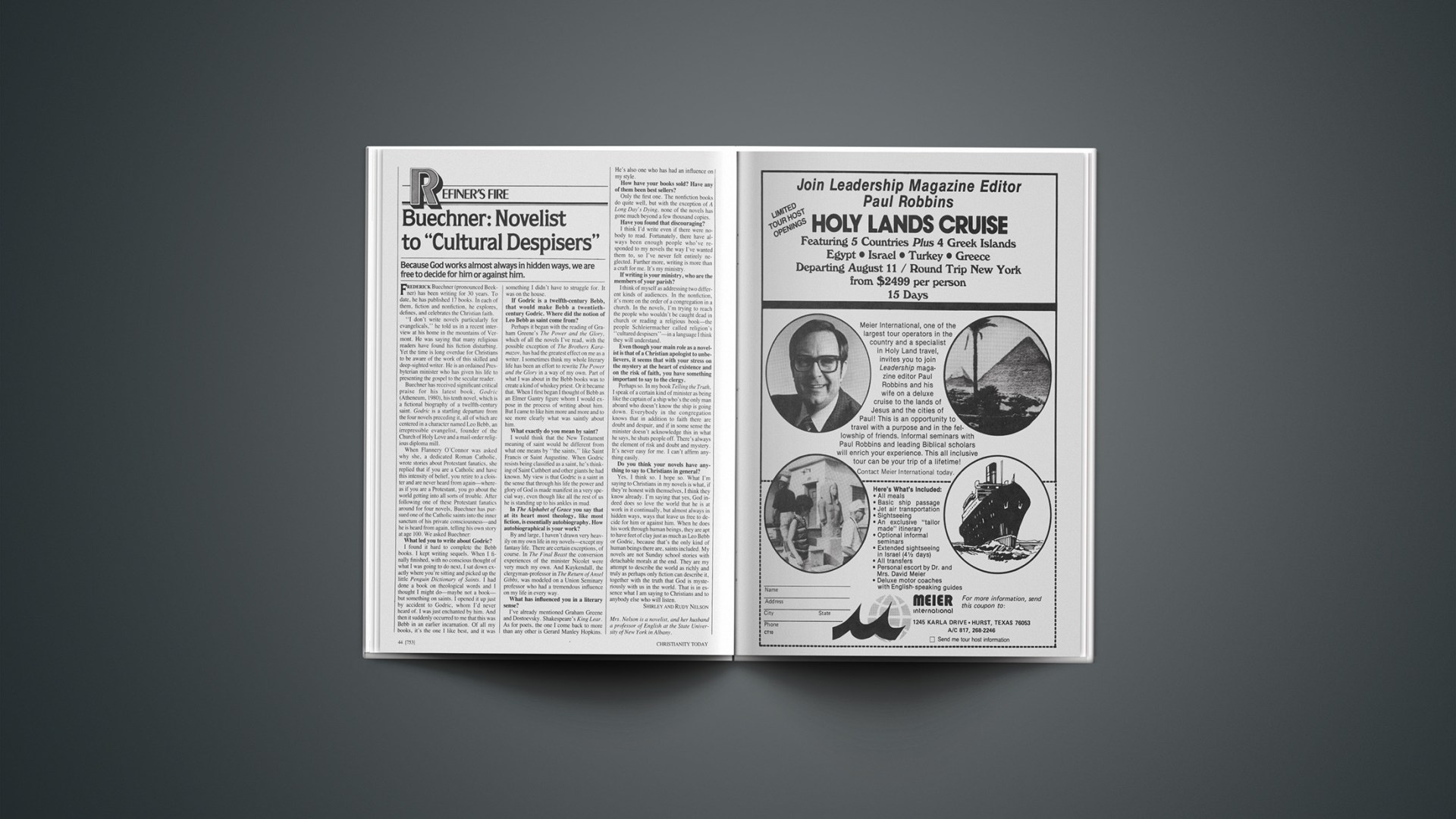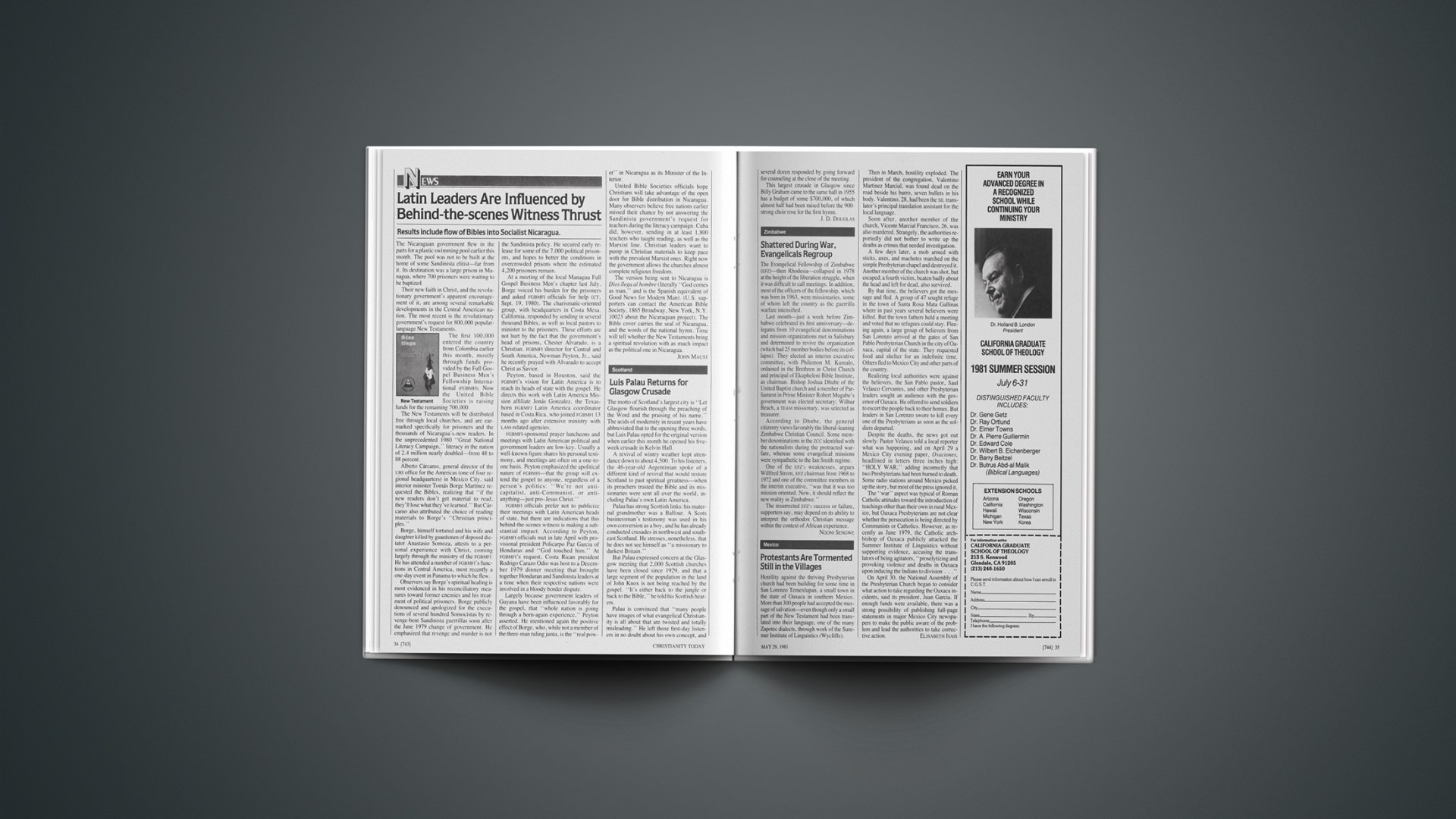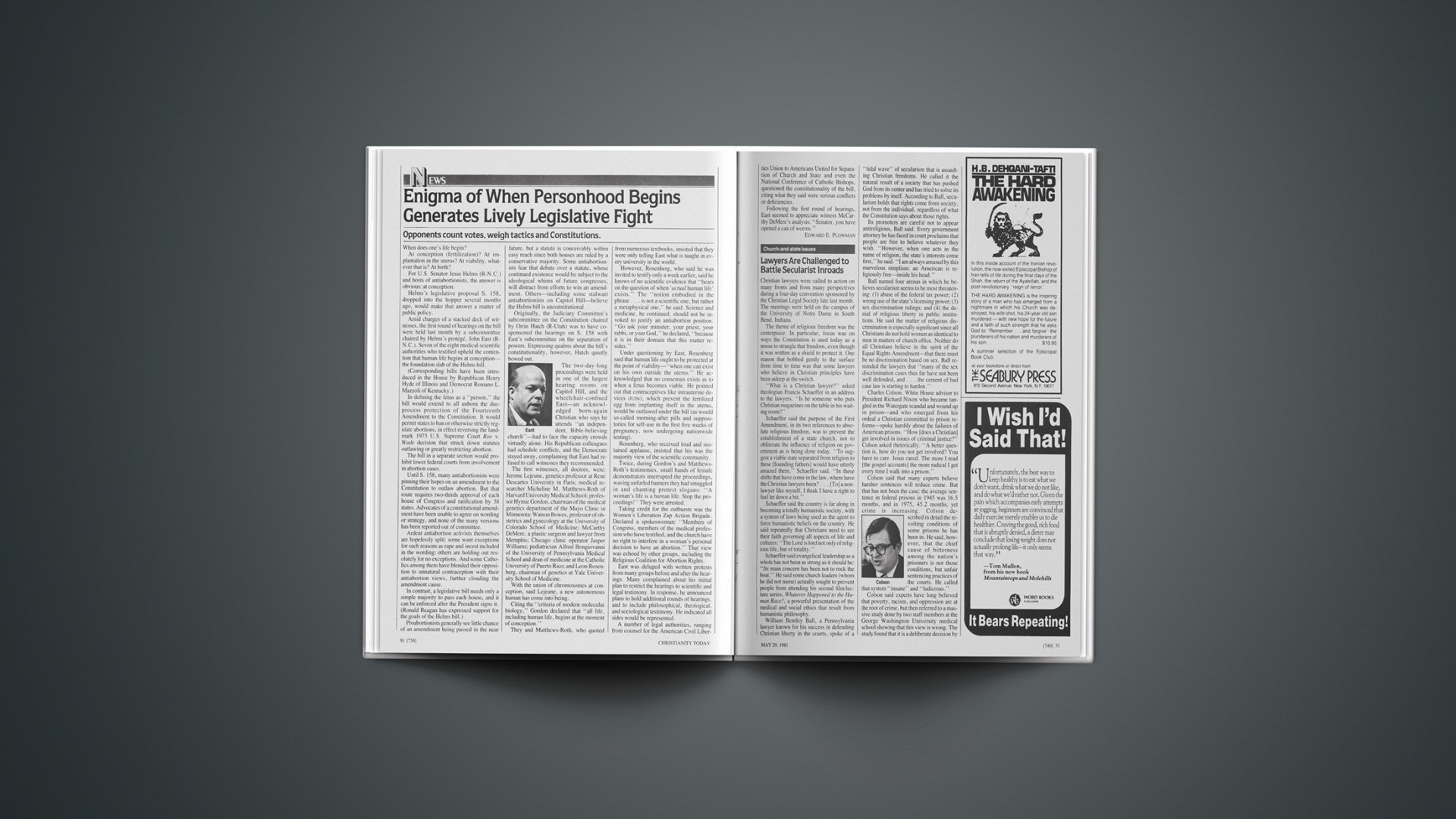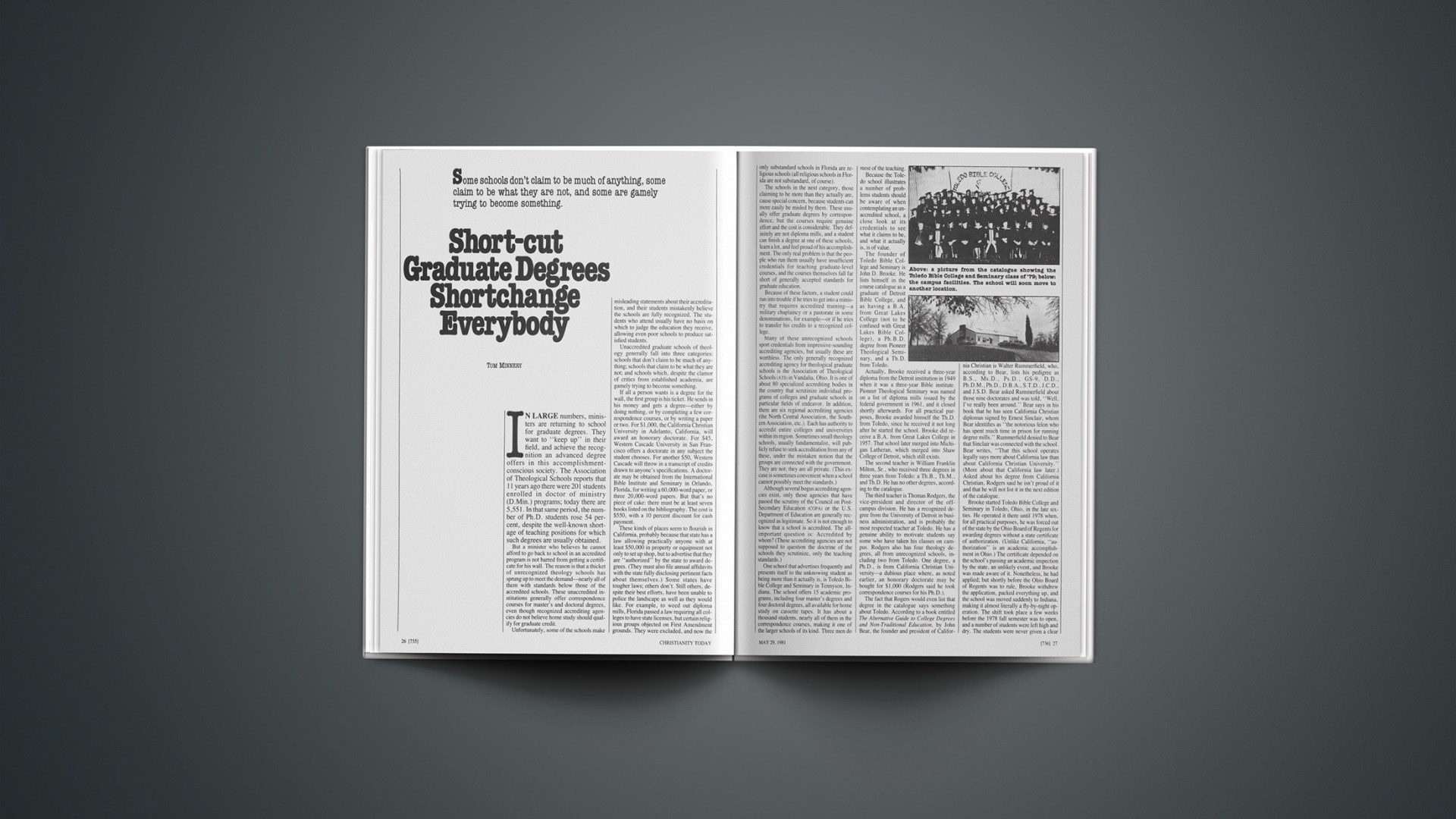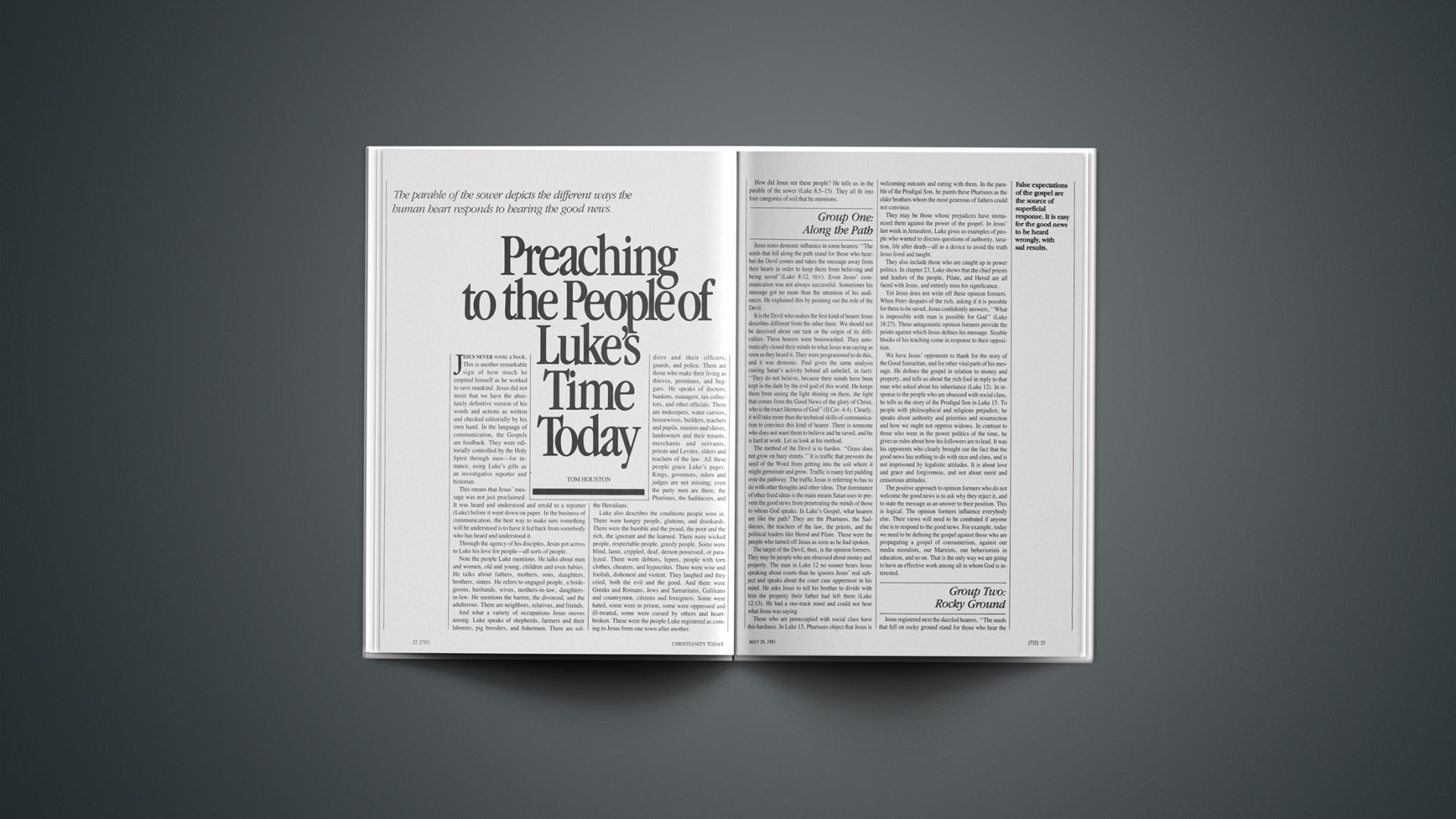An attempt by evangelicals to relate theology to the secular-humanist situation had better be done with eyes wide open.
Many evangelicals are being charged with adopting a new form of liberalism as they think through the ideas of modern secularists. What are we to make of this charge?
First, we must admit that the term “liberal theology” is often used loosely and pejoratively. Loosely, it designates any position theologically to the left of one’s own. A person who denies the reality of God will seem liberal to the one who denies only the deity of Christ. The defender of scriptural infallibility will seem liberal to the person dedicated to biblical inerrancy. Furthermore, like the term fundamentalist, the adjective liberal has taken on a negative connotation for many people, one that signifies a weakness of conviction, a willingness to compromise principle. As a result, most of those we call liberal today are reluctant to accept the designation. We must begin therefore with an attempt at definition.
Religious liberalism was originally a nineteenth-century response to the cultural revolution we call the Enlightenment, a response characterized by a high degree of accommodation. More important than the Reformation in the shaping of the modern mind, the Enlightenment was a revolution in the direction of human autonomy in all areas: politics, philosophy, science, art, music, theology, and so on. It represented a flourishing of man-centered, critical thought, opposed to any received dogma or authoritarian symbols.
Its impact upon Christian thought was devastating and total. Almost every pillar thought to undergird the system of revealed truth came under attack and was seriously undermined. God was no longer seen to be sovereign, man to be unique, history to be providentially directed, or miracles to be possible. The new humanist mentality demanded a response, and liberal theology was an attempted reply.
That response was marked by a willingness to concede to the humanistic orientation a considerable degree of validity. It tended to retreat from those orthodox positions that were most vulnerable to criticism, and set up Christianity’s defenses at points where the attack was not so much concentrated. Liberals like Schleiermacher sought to revise theology in terms of universal human religious experience, making faith somewhat private and existential, and thinking that the new ideal of human autonomy would thereby not be disturbed but rather attracted. A liberal like Ritschl saw in the humanist concern for morality an opportunity to present Christianity as a social (we would now say political) theology, also in the hope of Christianizing the new cultural mood. It would not be too harsh to say that liberal theology was a new form of Christianity, occasioned by the Enlightenment, which believed it necessary to abandon the old orthodox lines of defense and to shift the discussion to some new ones.
Religious liberalism is not really a theology in the sense of being a creedal formula. It is astonishingly diverse. It is really an approach or a method in theology rather than an ideology. It is noted chiefly for its openness to modernity and its willingness to accommodate Scripture to it. Even if its fortunes decline in one particular expression, liberal theology does not pass out of existence, but merely changes its shape in response to altered cultural conditions. Liberalism is super flexible, always ready to move into neoliberalisms.
Evangelicals feel religious liberalism is willing to pay too high a price to achieve relevance. Of course we see the apologetic problem. After all, what do you say to the person affected, as all are, by modernity, who has difficulty believing biblical teaching about Creation, demons, miracles, or hell? It is not necessary to regard all liberal theologians as people eagerly destroying faith and lusting after novel humanistic theologies. There is a large hermeneutical problem here with which liberals are trying to come to terms. What is wrong cannot be that they tried to give honest answers to honest questions. Bultmann and Schaeffer are both trying to do that.
What is wrong is that liberals tend to kill the theology patient while trying to save him. They lack a certain robust confidence in the truth of divine revelation that ought to guide them more profoundly in forming the answers they give. They tend to panic under pressure, and surrender far too much. They should know that one cannot defend Christianity while giving up on the incarnation and the bodily resurrection of Jesus without jeopardizing the thing they are out to defend. Religious liberalism is right to respond creatively to the Enlightenment (we all ought to do that), but wrong in the way it responds. It simply does not do sufficient justice to the norms of special revelation in the Bible, and therefore does not offer the coherent response so badly needed.
The antidote for all this involves a culturally creative and biblically faithful response to modernity and the range of questions it raises for all sensitive, thinking people. It will fall more and more to evangelical Christianity to give answers to questions raised in the modern world. The challenge is: How do we formulate answers that are not substantially the same as liberal proposals and, in terms of the Bible, equally deviant?
The militant conservatives in our midst are not imagining everything when they charge some of us with surrendering too much in our response to challenges of biblical criticism, evolution, feminism, political theology, and the like. There are signs that some evangelicals are on the way to becoming religious liberals, not because they chose to do so in one great step, but because in working out their ideas they have innocently covered most of the ground by smaller shifts. Suppose evangelicals start saying the Bible makes mistakes, is pluralistic theologically, culturally relative, offers basically an existential experience or some small core of truth. It is not alarmist to ask whether this is evidence of an essentially liberal theology arising among us.
I make no charges, but I appeal to our community of faith to work at our response to modernity with our eyes wide open, and not to repeat the mistakes of liberal theology. We need to heed the scriptural word, “let any one who thinks that he stands, take heed lest he fall” (1 Cor. 10:12). There is no law in stone that says evangelicals cannot become liberals. There is, in fact, a great deal of evidence that they have done so. Liberal theology could easily be called post evangelical theology, because that is almost always exactly what it has been historically. I urge my evangelical sisters and brothers to proceed with caution now that we have our place in the sun, so we do not repeat the mistakes of liberal theology.
CLARK H. PINNOCK1Dr. Pinnock is professor of systematic theology at McMaster Divinity College in Hamilton, Ontario, Canada.




